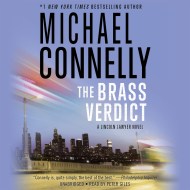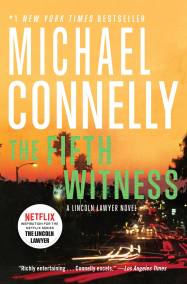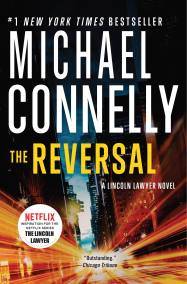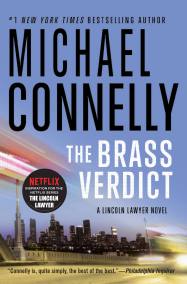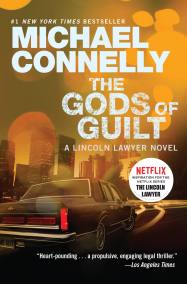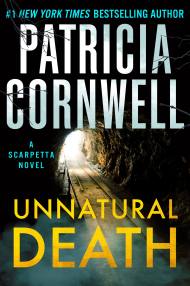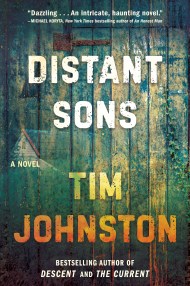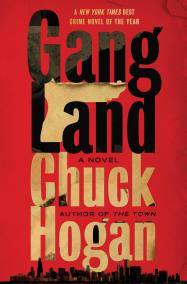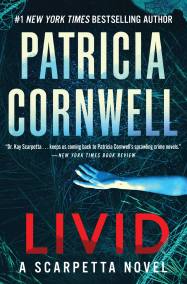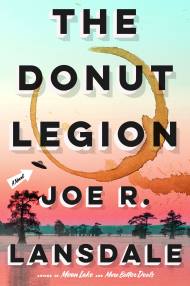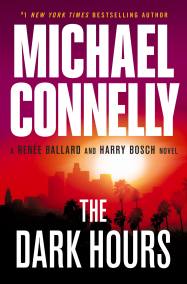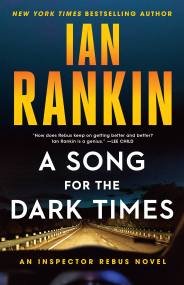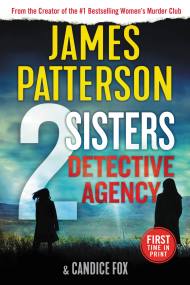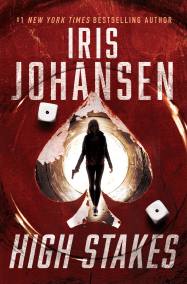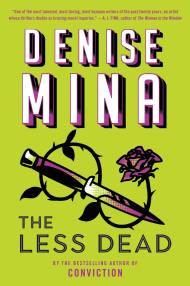
We have updated our Privacy Policy Please take a moment to review it. By continuing to use this site, you agree to the terms of our updated Privacy Policy.
Description
“One of the finest legal thrillers of the last decade” —Associated Press
On the night he celebrates a big win, defense attorney Mickey Haller is pulled over by police, who find the body of a former client in the trunk of his Lincoln. Haller is immediately charged with murder but can’t post the exorbitant $5 million bail slapped on him by a vindictive judge.
Mickey elects to represent himself and is forced to mount his defense from his jail cell in the Twin Towers Correctional Center in downtown Los Angeles. All the while he needs to look over his shoulder—as an officer of the court he is an instant target, and he makes few friends when he reveals a corruption plot within the jail.
But the bigger plot is the one against him. Haller knows he’s been framed, whether by a new enemy or an old one. As his trusted team, including his half-brother, Harry Bosch, investigates, Haller must use all his skills in the courtroom to counter the damning evidence against him.
Even if he can obtain a not-guilty verdict, Mickey understands that it won’t be enough. In order to be truly exonerated, he must find out who really committed the murder and why. That is the law of innocence.
In his highest stakes case yet, the Lincoln Lawyer fights for his life and proves again why he is “a worthy colleague of Atticus Finch . . . in the front of the pack in the legal thriller game” (Los Angeles Times).
A CBS The Doctors Book Club Pick
A People Book of the Week Selection
A Lincoln Lawyer Novel
Praise
What's Inside
A murder case is like a tree. A tall tree. An oak tree. It has been carefully planted and cared for by the state. Watered and trimmed when needed, examined for disease and parasites of any kind. Its root system is constantly monitored as it flourishes underground and its tendrils cling tightly to the earth. No money is spared in the protection of the tree and its caretakers are many. Its branches eventually grow and spread wide in splendor. They provide deep shade for those who seek true justice.
The tree’s branches spring from a thick and sturdy trunk. Direct evidence, circumstantial evidence, forensic sciences, motive and opportunity. They must stand strong against the fiercest winds.
And that’s where I come in. I’m the man with the ax. My job is to cut that tree down at the ground and carry its wood to the chipper.
Part 1
Echoes and Iron
1
It had been a good day for the defense. I had walked a man right out of the courtroom. I had turned a felony battery charge into a righteous case of self-defense in front of the jury. The alleged victim had a bad reputation and a history of violence that both prosecution and defense witnesses, including an ex-wife, were eager to describe on cross-examination. I delivered the knockout punch when I recalled him to the witness stand and led him down a path of questioning that put him over the edge. He lost his cool and threatened me, said he’d like to meet me out in the street where it would be just him and me.
“Would you then claim I attacked you like you have in this case?” I asked.
The prosecutor objected and the judge sustained. But that was all it took. The judge knew it. The prosecutor knew it. Everybody in the courtroom knew it. I notched the NG after less than half an hour of jury deliberation. It might have been my quickest verdict ever, guilty or not.
Within the informal downtown defense bar there is a sacred duty to celebrate a not-guilty verdict in the way a golfer celebrates a hole in one at the clubhouse. That is, drinks all around. My celebration took place at the Redwood on Second Street, just a few blocks from the civic center, where there were no fewer than three courthouses to draw celebrants from. It started early and ended late and when Moira, the heavily tattooed bartender who had been keeping the tab, handed me the damage, let’s just say I put more on my credit card than I would be receiving from the client I had just set free.
I had parked in a lot on Broadway. I got behind the wheel, took a left out of the lot and then another to put me back on Second Street. The traffic lights were with me and I followed the street into the tunnel that went under Bunker Hill and the Harbor Freeway. I was halfway through when I saw the reflection of blue lights on the tunnel’s sea-foam-green tiles. I checked the mirror and saw an LAPD cruiser was behind me. I hit the blinker and pulled into the slow lane to let him pass. But the cruiser followed my lead into the same lane and came up six feet behind me. I got the picture then. I was being pulled over.
I waited until I was out of the tunnel and took the first right onto Beaudry. I pulled to a stop, killed the engine, and lowered the window. In the Lincoln’s side-view mirror I saw a uniformed officer walking up to my door. I saw no one else in the patrol car behind him.
“Can I see your license, car registration, and proof of insurance, sir?” he asked.
I turned to look at him. His nametag said Milton.
“You sure can, Officer Milton,” I said. “But can I ask why you pulled me over? I know I wasn’t speeding and all the lights were green.”
“License,” Milton said. “Registration. Insurance.”
“Well, I guess you’ll eventually tell me. My license is in my pocket inside my coat. The other stuff is in the glove box. Which you want me to go for first?”
“Let’s start with your license.”
“You got it.”
As I pulled my wallet and worked the license out of one of its slots, I reviewed my situation and wondered if Milton had been watching the Redwood for lawyers exiting my party and possibly too tipsy to drive. There had been rumors about patrol cops doing that on nights when there was an NG party going on and defense lawyers could be picked off for a variety of moving-vehicle infractions.
I handed Milton my license and then went for the glove box. Soon enough the officer had all he had asked for.
“Now, are you going to tell me what this is about?” I asked. “I know I didn’t—”
“Step out of the car, sir,” Milton said.
“Oh, come on, man. Really?”
“Please step out of the car.”
“Whatever.”
I threw the door open, forcing Milton to take a step back.
“Just so you know,” I said. “I spent the last four hours in the Redwood but I didn’t have a drop of alcohol. I haven’t had a drink in more than five years.”
“Good for you. Please step to the back of your vehicle.”
“Make sure your car camera is on because this is going to be embarrassing.”
I walked past him to the back of the Lincoln and stepped into the lights of the patrol car behind it.
“You want me to walk a line?” I said. “Count backward, touch my nose with my finger, what? I’m a lawyer. I know all the games and this one is bullshit.”
Milton followed me to the back of the car. He was tall and lean, white with a high and tight haircut. I saw the Metro Division badge on his shoulder and four chevrons on his long sleeves. I knew they gave them out for five years of service each. He was a veteran Metro bullethead.
“You see why I stopped you, sir?” he said. “Your car has no plate.”
I looked down at the rear bumper of the Lincoln. Milton was right. There was no plate.
“Goddamn it,” I said. “Uh…this is some kind of prank. We were celebrating—I won a case today and walked my client. The plate says IWALKEM and one of those guys must’ve thought it was a joke to steal the plate.”
I tried to think about who left the Redwood before I did, and who would have thought this was a funny thing to do. Daly, Mills, Bernardo…it could have been anyone.
“Check the trunk,” Milton said. “Maybe it’s in there.”
“No, they would need a key to put it in the trunk,” I said. “I’m going to make a call, see if I can—”
“Sir, you’re not making a call until we’re finished here.”
“That’s bullshit. I know the law. I’m not in custody—I can make a call.”
I paused there to see if Milton had any further challenge. I noticed the camera on his chest.
“My phone’s in the car,” I said.
I started moving back to the open door.
“Sir, stop right there,” Milton said from behind me.
I turned around.
“What?”
He snapped on a flashlight and pointed the beam at the ground behind the car.
“Is that blood?” he asked.
I stepped back and looked down at the cracked asphalt. The officer’s light was centered on a blotch of liquid beneath the bumper of my car. It was dark maroon at the center and almost translucent at its edges.
“I don’t know,” I said. “But whatever it is, it was already there. I’m—”
Just as I said it we both saw another drop come down from the bumper and hit the asphalt.
“Sir, open the trunk, please,” Milton demanded as he put the flashlight into a belt holster.
A variety of questions cascaded through my mind, starting with what was in the trunk and ending with whether Milton had probable cause to open it if I refused to.
Another drop of what I now assumed to be bodily fluid of some sort hit the asphalt.
“Write me the ticket for the plate, Officer Milton,” I said. “But I am not opening the trunk.”
“Sir, then I am placing you under arrest,” Milton said. “Put your hands on the trunk.”
“Arrest? For what? I’m not—”
Milton moved in on me, grabbing me and spinning me toward my car. He threw all of his weight into me and doubled me over the trunk.
“Hey! You can’t—”
One by one my arms were roughly pulled behind my back and I was handcuffed. Milton then put his hand into the back collar of my shirt and jacket and yanked me up off the car.
“You’re under arrest,” he said.
“For what?” I said. “You can’t just—”
“For your safety and mine I’m putting you into the back of the patrol car.”
He roughly turned me again and walked me to the rear passenger door of his car. He put his hand on top of my head as he pushed me into the plastic seat in the back.
“You know you can’t open the trunk,” I said. “You have no probable cause. You don’t know if that’s blood and you don’t know if it’s coming from the interior of the car. I could’ve driven through whatever it is.”
Milton pulled back out of the car and looked down at me.
“Exigent circumstances,” he said. “Someone in there might need help.”
He slammed the door. I watched him go back to my Lincoln and study the trunk lid for some sort of release mechanism. Finding none, he went to the open driver’s door and reached in to remove the keys.
He used the key fob to pop the trunk, standing off to the side should someone come up out of the trunk shooting. The lid went up and there was an interior light. Milton supplemented it with his own flashlight. He moved from left to right, stepping sideways and keeping his eyes and the beam on the contents of the trunk. From my angle in the back of the patrol car, I could not see into the trunk but could tell by the way Milton was maneuvering and bending down for a closer look that there was something in there.
Milton tilted his head to talk into the radio mic on his shoulder and made a call. Probably for backup. Probably for a homicide unit. I didn’t have to see into the trunk to know that Milton had found a body.
2
Edgar Quesada sat next to me at a dayroom table as I read the last pages of the transcript from his trial. He had asked me to review his case files as a favor, hoping there was something I could see or do to help his situation. We were in the high-power module in the Twin Towers Correctional Institute in downtown Los Angeles. This was where they housed inmates on keep-away status as they waited for trial or, as in Quesada’s case, sentencing to state prison. It was a Sunday evening in February and the jail was cold. Quesada wore white long johns under his orange jumpsuit, the sleeves all the way down to his wrists.
Quesada was in familiar surroundings. He had been down this path before and had the tattoos to prove it. A third-generation White Fence gang member from Boyle Heights with lots of inked allegiance to the gang and the Mexican Mafia, which was the largest and most powerful gang in California’s jail and prison systems.
According to the documents I had been reading, Quesada had been the driver of a car that carried two other members of White Fence as they fired automatic weapons through the plate-glass windows of a bodega on East First Street where the owner had fallen two weeks behind on the gang tax White Fence had been extorting from him for almost twenty-five years. The shooters had aimed high, the attack intended to be a warning. But a ricochet went low and hit the bodega owner’s granddaughter in the top of the head as she crouched behind the counter. Her name was Marisol Serrano. She died instantly, according to testimony I read from the deputy coroner.
No witnesses to the crime identified the shooters. That would have been a fatal exercise in bravery. But a traffic cam caught the license plate on the getaway car. It was traced to a car stolen from the long-term parking garage at nearby Union Station. And cameras there caught a glimpse of the thief: Edgar Quesada. His trial lasted only four days and he was convicted of conspiracy to commit murder. His sentencing was in a week and he was looking at a minimum of fifteen years in prison, with the likelihood of many more beyond that.
“So?” Quesada said, as I flipped the last page over.
“Well, Edgar,” I said. “I think you’re kind of fucked.”
“Don’t tell me that. There’s nothing? Nothing at all?”
“There’s always things you can do. But they’re long shots, Edgar. I’d say you have more than enough here for a 2254 motion but—”
“What’s that?”
“Ineffective assistance of counsel. Your lawyer sat on his hands the whole trial. He let objection after objection pass. He just let the prosecutor—well, here, you see this page?”
I moved back through the transcript to a page where I had folded a corner over.
“Here the judge even says, Are you going to object, Mr. Seguin, or do I have to keep doing it for you? That is not good trial work, Edgar, and you may have a shot at proving that, but here is the thing: at best you win the motion and get a do-over, but that doesn’t change the evidence. It’s still the same evidence and with the next jury you’ll go down again, even if you have a new lawyer who knows how to keep the prosecutor inside the lines.”
Quesada shook his head. He was not my client so I didn’t know all the details of his life, but he was about thirty-five and looking at a lot of hard time.
“How many convictions do you have?” I asked.
“Two,” he said.
“Felonies?”
He nodded and I didn’t have to say anything else. My original assessment stood. He was fucked. He was probably going away forever. Unless…
“You know why they got you here in high power instead of the gang module, right?” I said. “Any day now they’re going to pull you out of here and put you in a room and ask you the big question. Who was in the car with you that day?”
I gestured to the thick transcript.
“There’s nothing here that will help you,” I said. “The only thing you can do is deal the time down by giving up names.”
I said the last part in a whisper. But Quesada didn’t respond as quietly.
“That’s bullshit!” he yelled.
I checked the mirrored window of the control room overhead even though I knew I could see nothing behind it. I then looked down at Quesada and saw the veins in his neck start to pulse—even beneath the inked necklace of cemetery stones that circled it.
“Cool down, Edgar,” I said. “You asked me to look at your file and that’s all I’m doing. I’m not your lawyer. You should really talk to him about—”
“I can’t go to him,” Quesada said. “Haller, you don’t know shit!”
I stared at him and finally understood. His lawyer was controlled by the very people he would need to inform on: White Fence. Going to him would almost assuredly result in a Mexican Mafia–hired snitch shanking, whether he was in the high-power module or not. It was said that the eMe, as it was more formally known, could get to anybody anywhere in a California lockdown.
I was literally saved by the bell. The five-minute warning horn before bed check sounded. Quesada reached across the table and roughly grabbed up his documents. He was through with me. He got up while still smoothing all the loose pages into a neat stack. Without a thank you or a fuck you, he headed off to his cell.
And I headed to mine.
3
At 8 p.m. the steel door of my cell automatically slid closed with a metallic bang that jolted my entire being. I had been in lockup for five weeks and it was something I couldn’t and didn’t want to ever get used to. I sat down on the three-inch-thin mattress and closed my eyes. I knew the overhead light would stay on another hour and I needed to use that time, but this was my ritual. To try to blank out all the harsh sounds and fears. To remind myself of who I still was. A father, a lawyer—but not a murderer.
“You got Q all hot and bothered out there.”
I opened my eyes. It was Bishop in the next cell over. There was an air-vent grate high up on the wall that separated our cells.
“Didn’t mean to,” I said. “I guess next time somebody needs a jailhouse lawyer in here I’ll just pass.”
“Good plan,” Bishop said.
“And where were you, by the way? It was about to become kill-the-messenger time with him. I looked around, no Bishop.”
“Don’t worry, Homes, I had you covered. I was watching from up on the rail.”
I was paying Bishop $400 a week for protection, the payment delivered in cash by my investigator to his girlfriend and mother of his son in Inglewood. His protection extended throughout the quarter of the high-power octagon where we were housed: two tiers, twenty-four cells, with twenty-two other inmates presenting varying levels of known and unknown threat to me.
On my first night Bishop had offered to protect me or hurt me. I didn’t negotiate. He usually stuck close when I was in the dayroom but I had not seen him on the second-tier walkway rail when I had given Quesada the bad news about his case.
I reached under the bed for the cardboard file box that held my own case docs. I checked the rubber bands first. I had wrapped each of the four stacks of documents with two bands each, horizontal and vertical, with the bands crossing at a specific spot on the top sheet. This told me if Bishop or anyone else had snuck in and started pawing through my papers. I had a client once who almost went down on a first-degree murder because a jailhouse snitch had gotten to the files in his cell and was able to read enough discovery material to concoct a convincing but phony confession he claimed my client had made to him. Lesson learned. I set rubber-band traps and would know if someone had looked through my stuff.
I was now facing a first-degree murder charge myself and was going pro se, meaning I was defending myself. I know what Lincoln said and probably many wise men before him. Maybe I did have a fool for a client, but I couldn’t see putting my future in any hands other than my own. So, in the matter of the State of California versus Michael Haller, the defense’s war room was cell 13, level K-10 at Twin Towers.
I pulled my motions packet out of the box and snapped off the rubber bands after confirming that the documents had not been tampered with. A motions hearing was scheduled for the following morning and I wanted to prep. I had three requests before the court, beginning with a motion to lower bail. It had been set at my arraignment at $5 million, with the prosecution successfully arguing that I was not only a flight risk but a threat to witnesses in the case because I knew the inner workings of the local justice system like the back of my hand. It didn’t help that the judge handling the arraignment was the honorable Richard Rollins Hagan, whose rulings in prior cases I had twice gotten overturned on appeal. He got some payback on me, agreeing with the prosecution request to more than double down on the schedule that recommended a $2 million bail for first-degree murder.
At the time, the difference between $2 and $5 million didn’t matter. I had to decide if I wanted to put everything I had into my freedom or into my defense. I decided on the latter and took up residence in the Twin Towers, qualifying for keep-away status as an officer of the court who had potential enemies in all of the gen-pop dorms.
But tomorrow I would stand before a different judge—one I believed I had never crossed—and ask for a reduction in bail. I had two other motions to argue as well and now reviewed my notes so I could stand and argue before the judge instead of read.
More important than the bail motion was the discovery motion that accused the prosecution of withholding information and evidence I was entitled to, and the challenge to the probable cause of the police stop that led to my arrest.
I had to assume that Judge Violet Warfield, who had drawn the case on rotation, would put a time cap on arguments on all the motions. I would need to be ready—succinct and on point.
“Hey, Bishop?” I said. “You still awake?”
“I’m awake,” Bishop said. “What’s up?”
“I want to practice on you.”
“Practice what?”
“My arguments, Bishop.”
“That ain’t part of our deal, man.”
“I know but the lights are about to go out and I’m not ready. I want you to listen and tell me what you think.”
At that moment the lights on the tier went out.
“Okay,” Bishop said. “Let’s hear it. But you pay extra for this.”
4
In the morning I was on the first bus to the courthouse, having dined on a baloney sandwich and a bruised red apple for breakfast. It was the same breakfast every morning and it was served again at lunch for good measure. I was long past any revulsion with it. It was the routine and now I put it away easily. I estimated I had already lost between ten and twenty pounds during my incarceration and I looked at it as getting down to fighting weight for what would surely be the bout of my life.
On the bus I was with thirty-five other inmates, most of whom were heading to morning arraignment court. I had seen the wide-eyed look of fear in clients when I met them for the first time at first appearances. But that was always in court and always with me calming and preparing them for what lay ahead. On the buses I was always surrounded by it. Men facing their first experience of incarceration. Men who had been in lockup many times before. There was a desperation to it whether you were a rookie or a recidivist.
I found the bus rides to and from court to be my own moments of biggest fear. It was random selection when you were loaded on. I had no Bishop, no bodyguard. Should anything happen to me, the deputies were behind an iron grate at the front: Driver and Shotgun. Their role would simply be to sort out the dead and dying when whatever happened was over. They weren’t there to protect and serve. Just to move people along in the underbelly of the justice system.
The bus pulled into the cavernous garage beneath the Clara Shortridge Foltz Criminal Justice Center and we were offloaded and escorted into the vertical maze of holding cells that served the building’s twenty-four courtrooms.
As a pro se I was entitled to some legal niceties not afforded most of the men and women who came off the buses. I was taken to a private holding cell where I could confer with my investigator and stand-in attorney—the lawyer assigned as my backup to handle the printing, filing, and in some cases fine-tuning of motions and other documents produced as part of the case. My investigator was Dennis “Cisco” Wojciechowski and the stand-in was my law partner, Jennifer Aronson.
Everything moves slowly in incarceration. My 4 a.m. wakeup at Twin Towers resulted in getting to my private conference room at 8:40 a.m., a total travel distance of four blocks. I had brought one rubber-banded stack of documents with me—the motions—and was spreading them on the metal table when my team was escorted in by a detention deputy at nine sharp.
Cisco and Jennifer were required to sit across the table from me. No handshakes or hugs. The meeting fell under attorney-client privilege and was private. But there was a camera in one corner of the ceiling. We would be watched but the camera carried no audio back to the deputy who monitored it. I wasn’t sure I fully believed this and during prior team meetings I would occasionally make a remark or issue an order designed to send the prosecution off on a wild-goose chase, if they happened to be illegally listening in. I used a code in each statement to alert my team to the ruse.
I was in dark blue scrubs with LAC DETENTION stenciled across the front and back of my shirt. Like Edgar Quesada the evening before, I wore long johns underneath. I had learned quickly during my stay with the county that the early-morning bus rides and courthouse holding cells were unheated and I dressed accordingly.
Jennifer was dressed for court in a charcoal suit and cream-colored blouse. Cisco, as was his routine, was dressed for a sunset ride down the Pacific Coast Highway on his classic Harley panhead: black jeans, boots, and T-shirt. It appeared that his skin was impervious to the cold, damp air of the conference cell. That he was from Wisconsin might have had something to do with it.
“How’s my team this fine morning?” I said cheerily.
Although I was the one incarcerated and wearing the jailhouse scrubs, I knew it was important to keep my team engaged and not worried about my predicament. Act like a winner and you will become a winner—as Legal Siegel, my late mentor, used to say.
“All good, Boss,” Cisco said.
“How are you doing?” Jennifer asked.
“Better to be in the courthouse than the jail,” I said. “Which suit did Lorna pick out?”
Lorna Taylor was my case manager as well as my sartorial consultant. This second duty extended from when she had been my wife—my second wife, in a union that lasted only a year. Though I would not be appearing this day before a jury, I had previously secured Judge Warfield’s approval of a motion allowing me to dress in my professional clothes during all appearances in open court. My case had drawn considerable attention from the media and I didn’t want a photo of me in convict garb going viral. It was act like a winner and the potential jury pool out there would think you were a winner. My carefully curated selection of suits added to my confidence when I stood before the court to argue my case.
“The blue Hugo Boss with pink shirt and gray tie,” Jennifer said. “The courtroom deputy has it.”
“Perfect,” I said.
Cisco rolled his eyes at my vanity. I ignored it.
“What about the time?” I asked. “You talk to the clerk?”
“Yes, the judge slotted an hour,” Jennifer said. “Will that be enough?”
“Probably not with argument from Dana. I might have to drop something if Warfield sticks to the schedule.”
Dana was Dana Wilson, the Major Crimes Unit star prosecutor assigned to convicting me and sending me off to prison for the rest of my life. She carried the intimidating nickname of Death Row Dana, obviously garnered before the current governor of the state suspended the death penalty shortly after taking office.
“Then what do we drop?” Jennifer asked.
“Let’s put bail on the back burner,” I said.
“Wait, no,” Cisco said.
“What? I wanted to go with that right out of the gate,” Jennifer said. “We need to get you out of there and into unrestricted strategy sessions in an office, not a cell.”
Jennifer raised her hands to take in the cell we were sitting in. I knew that they would both protest my decision on bail. But I intended to make better use of today’s time in front of the judge.
“Look, it’s not like I’m having a great time over there,” I said. “It’s not the Ritz. But there are things that are more important to accomplish today. I want to get a full hearing on the probable-cause challenge. That’s number one. And then I want to argue the discovery issues. You ready on that, Bullocks?”
It had been a long time since I had called Jennifer by her baby-lawyer nickname. I had hired her right out of Southwestern Law School, which was housed in a former Bullock’s department store. I had wanted somebody with a working-class law degree and an underdog’s drive and fierceness. In the years since, she had proved me a genius, rising from an associate counsel to whom I handed off low-money cases to a full partner and trusted confidante who could hold her own and win in any courtroom in the county. I wasn’t interested in using her as a mere filer of documents. I wanted her going toe to toe with Dana Wilson on the prosecution’s delays in discovery. This was the most important case of my career and I wanted her side by side with me at the defense table.
“I’m ready,” she said. “But I’m also ready to argue bail. You need to be out so you can prepare for trial without needing a bodyguard watching your back while you’re eating baloney fucking sandwiches.”
I laughed. I guess I had complained a little too often about the Twin Towers menu.
“Look, I get that,” I said. “And I don’t mean to laugh. But I need to keep payroll going and I don’t want to come out of this thing bankrupt and with nothing left for my daughter. Somebody’s got to pay for law school and it’s not going to be Maggie McFierce.”
My first ex-wife and the mother of my child was a lifer in the District Attorney’s Office. Real name: Maggie McPherson. She made a comfortable living and had raised our daughter, Hayley, in a clean and safe neighborhood in Sherman Oaks. I had paid for private schools all the way and now Hayley was looking at USC law after graduating from Chapman this year. That would carry a steep price tag that would fall to me to pay. I had planned for it and had it covered in savings, but not if I pulled the cash and put it into a nonrefundable bond just to spring myself loose to prep for trial.
I had done the math and it wasn’t worth it. Even if we persuaded Judge Warfield to cut bail in half, I was still looking at needing $250,000 to buy a bond that really only amounted to two months of freedom. After all, I had refused to waive my right to a speedy trial and had the state on a clock. The trial was only six weeks away and the verdict would either give me back my freedom or permanently suspend it. On many previous occasions I had counseled clients to save their bond money and nut it out in Twin Towers.
Now that was the counsel I gave myself.
“Look, you know that Lorna, Cisco, and I have all said we can defer paychecks till this is over,” Jennifer said. “I really think you need to reconsider—for the sake of the case.”
I nodded.
“Duly noted,” I said. “Let’s see if there’s time to get to it today. If not, we’ll take it up in the next round. Let’s move on past the motions. Cisco, what’s happening with the review of previous cases?”
“Me and Lorna are through about half the files,” Cisco said. “So far nothing stands out. But we’re working on it and making a list of possibles.”
He was talking about a list of former clients and enemies who might have the motive and wherewithal to pin a murder case on me.
“Okay, I need that,” I said. “I can’t just go into court and say I was framed. A third-party culpability case requires a third party.”
“We’re on it,” Cisco said. “If it’s there, we’ll find it.”
“If?” I asked.
“I didn’t mean it like that, Boss,” Cisco said. “I just meant—”
“Listen,” I said. “I’ve spent the last twenty-five years of my life telling clients that it didn’t matter to me whether they did it, because my job was to defend them, not judge them. Guilty or innocent, you get the same deal and the same effort. But now that I’m on the other side of it, I know that’s bullshit. I need you two and Lorna to believe in me on this.”
“Of course we do,” Jennifer said.
“Goes without saying,” Cisco added.
“Don’t be so quick to answer,” I said. “You must have questions about it. The state’s case is more than persuasive. So if at any point Death Row Dana turns you into a believer, I need you to step up and step out. I don’t want you on the team.”
“Not going to happen,” Cisco said.
“Never,” added Jennifer.
“Good,” I said. “Then let’s go to war. Jennifer, can you go get my suit and bring it in so I can get ready?”
“Be right back,” she said.
She got up and hammered on the steel door with one hand while waving to the overhead camera with the other. Soon I heard the sharp metal crack of the door unlocking. A deputy opened it to let her out.
“So,” I said once Cisco and I were alone. “What’s the water temp these days down in Baja?”
“Oh, it’s nice,” Cisco said. “I talked to my guy down there and he said high eighties.”
“Too warm for me. Tell him to let me know when it gets down to about seventy-five. That would be perfect for me.”
“I’ll tell him.”
I nodded to Cisco and tried not to smile for the overhead camera. Hopefully, this last bit of conversation was intriguing enough to any illegal listeners to send them fishing for a red herring down in Mexico.
“So, what about our victim?” I said.
“Not a lot so far,” Cisco said hesitantly. “I’m hoping Jennifer gets discovery going today so I can run down his movements and how and when he ended up in your trunk.”
“Sam Scales was a slippery guy. Nailing him down is going to be tough, but I’m going to need that.”
“Don’t worry. You’ll have it.”
I nodded. I liked Cisco’s confidence. I hoped it would pay off. I thought for a moment about my former client Sam Scales. The ultimate con man who had even conned me. Now the victim in the biggest con of all, I was set up for a murder that I knew was going to be a hard frame to break.
“Hey, Boss, you okay?” Cisco asked.
I looked at him.
“Yeah, fine,” I said. “Just thinking about things. This is going to be fun.”
Now Cisco nodded. He knew it was going to be anything but fun, but he understood the sentiment. Act like a winner and you’ll become a winner.
The cell door slid open again and Jennifer came back in carrying my court clothes on two hangers. I usually reserved the pink oxford for appearances before a jury, but that was okay. Just seeing the sharp cut of the suit on its hanger kicked my mood up to a new level. I started getting ready for battle.
5
My suit fit me loosely. I felt like I was swimming in it. The first thing I told Jennifer when they moved me into court and took off the chains was to ask Lorna to go to my house, pick out two of my suits, and take them to the tailor to be refitted before my trial started.
“That’s going to be kind of hard without you there to be measured,” she said.
“I don’t care, it’s important,” I said. “I don’t want to look like a guy in a borrowed suit in front of the jury.”
“Okay, I get it.”
“I’ll probably lose another five pounds by jury selection. Tell her to have them take them in a full size all around.”
“What are they feeding you in that place?”
“Apples. I mostly eat apples. I trade baloney sandwiches for apples.”
“You’d better start eating the baloney.”
Before I could respond, Dana Wilson stepped over to the defense table and put down a set of documents.
“Our answers to your motions,” she said. “I’m sure it will all come out in oral.”
“Timely,” Jennifer said, meaning it was anything but.
She started reading. I didn’t bother. Wilson seemed to hesitate, as if expecting a retort from me. I just looked up and smiled.
“Good morning, Dana,” I said. “How was your weekend?”
“Better than yours, I’m sure,” she said.
“I think that would be a given,” I said.
She smirked and returned to the prosecution table.
“No surprise, she’s objecting to everything,” Jennifer said. “Including bail reduction.”
“Par for the course,” I said. “Like I said, don’t worry about bail today. We’ll—”
I was silenced by the booming voice of the courtroom deputy announcing the arrival of Judge Warfield. We were instructed to remain seated and come to order.
I had believed I got lucky when we drew Warfield on the case. She was a tough law-and-order firebrand, but she was also a former member of the defense bar. Oftentimes defense lawyers who become judges seem to go out of their way to show impartiality by favoring the prosecution. That was not what I knew about Warfield. While I had never had a case before her, I had checked with Daly, Mills, and some of the other defense pros who were regulars at the Redwood and Four Green Fields, and they all told me that Warfield threw her pitches right down the middle. That was good with me. In addition, she was black and that made her an underdog in society. Coming up, she had had to be better than the other lawyers to make her way. That demanded a mindset I liked. She knew full well the disadvantages I faced in trying to defend myself. My guess was that she would include that knowledge in her decisions.
“We’re on the record in California versus Haller and we have a series of motions to consider,” the judge said. “Mr. Haller, you are pro se in this matter. Will you be offering argument, or will it be your co-counsel, Ms. Aronson?”
I stood to reply.
“May it please the court,” I began, “we would like to tag-team a little bit today. I would like to start with the motion to suppress.”
“Very well,” Warfield said. “Proceed.”
Here is where it got tricky. I had filed what was technically a motion in limine to exclude evidence that had been unconstitutionally obtained. I was challenging the traffic stop that led to the discovery of the body of Sam Scales in the trunk of my car. If I won the motion, the case against me would probably be DOA. But it was a long shot to believe that a judge, even as impartial as I had heard Warfield to be, would throw such a wrench into the state’s case. And that was what I was counting on. Because I didn’t want that to happen either. With any other client I would want that ruling. But this was my own case. I did not want to win on a technicality. I needed to be exonerated. The trick here was to have a full-blown hearing on the constitutionality of the traffic stop that put me in jail. But I only wanted it in order to get Officer Milton on the stand so that I could draw out his story and lock it down under oath. Because I believed I was set up for this and that setup had to have included Milton in some way.
Carrying the printout of the motion, I walked to the lectern between the prosecution and defense tables. On the way I casually checked the gallery and saw at least two people I recognized as journalists covering the hearing. I knew I had a conduit to get my defense out into the world through them.
I also saw my daughter, Hayley, in the back row. She was spending her summer before law school shadowing her mother in the D.A.’s office. But since it was an unpaid internship, she was granted the freedom to attend all hearings that brought me into court. I had forbidden her from visiting me in jail. I didn’t want her ever to see me in jail scrubs.
I threw her a nod and a smile, but seeing her now reminded me how ill-fitting my suit was. It looked borrowed and announced CONVICT! to all courtroom observers. I might as well have been wearing the scrubs. I tried to shake off these thoughts when I got to the lectern and turned my attention to the judge.
“Your Honor,” I said. “As the motion before the court states, the defense contends that I was set up and framed in this case. And that setup came into play with the illegal and unconstitutional stop by the police on the night I was arrested. I have re—”
“Set up by whom, Mr. Haller?” the judge asked.
I was thrown by the question. As valid as it may have been, it was unexpected from the judge, especially before I finished my argument.
“Judge, that is irrelevant at this hearing,” I said. “This is about the traffic stop and whether it was constitutional. It—”
“But you are saying you were framed. Do you know who framed you?”
“Again, Your Honor, that is irrelevant. In six weeks it will be very relevant, but I don’t see why I have to reveal my case to the prosecution while challenging the validity of the traffic stop.”
“Then continue.”
“Thank you, Your Honor, I will. The—”
“Is that a shot?”
“Excuse me?”
“What you just said, is that a shot at me, Mr. Haller?”
I shook my head as though confused. I couldn’t even remember what I had said.
“Uh, no, not a shot, Judge,” I said. “I don’t remember what I said but it was in no way intended to—”
“Very well, let’s move on,” the judge said.
“Okay, well, I apologize if anything was misinterpreted. As I was saying, I’ve filed a motion to suppress, challenging the probable cause to stop and the probable cause supporting a warrantless search of the trunk of the vehicle I was driving. An evidentiary hearing is required on the issues raised with the attendance of the officer who stopped me and searched my vehicle. I would like to schedule a time for the hearing. But before we can do that, I have other matters that need to be addressed. My investigator has been trying for two weeks, Your Honor, to talk to the officer who stopped me—Officer Roy Milton—and has been unsuccessful despite numerous requests to him and the police department. I know we will be discussing our discovery motion later but, same thing, no cooperation from the D.A.’s office in regard to the arrest. Officer Milton was clearly wearing a body camera, in keeping with LAPD regulations, and we have not been given the video. There was a video camera in the police car as well and we have not been given that either.”
“Your Honor?” Dana Wilson said. “The state objects to defense’s argument. He is turning a motion to suppress evidence in the case into a request for evidence. I’m confused.”
“So am I,” Warfield said. “Mr. Haller, I allowed you to defend yourself because you are an experienced lawyer, but you are sounding more and more like an amateur. Please stay on point.”
“Well then, I too am confused, Your Honor,” I said. “I filed a legally sufficient motion to suppress the fruits of a warrantless search. Ms. Wilson bears the burden of demonstrating the justification for the search. Yet I don’t see Officer Milton in the courtroom. So unless the prosecution is about to announce a concession, Ms. Wilson is not ready to defend against the motion. Yet Ms. Wilson acts as if I’m supposed to merely argue and be done with it.
“Judge, the point is that I request an evidentiary hearing and an opportunity to prepare for that hearing after receiving the discovery I am entitled to. I can’t properly and fully argue the motion to suppress because the prosecution is violating the rules of discovery. I ask the court to table this for today, order the prosecution to fulfill its discovery obligations, and schedule a full evidentiary hearing on the motion at a time when witnesses, including Officer Milton, may appear.”
The judge looked at Wilson.
“I know we have a discovery motion in Mr. Haller’s stack,” Warfield said, “but where are we on those items just mentioned? The video from the officer and the car. Those should have been turned over by now.”
“Judge,” Wilson said. “We have had technical issues with the transfer of—”
“Your Honor,” I roared, “they can’t be pulling this technical difficulty excuse. I was arrested five weeks ago. My freedom is on the line here and for them to say technical issues have delayed my due process rights is patently unfair, Judge.”
“I agree,” Warfield said. “We are going to continue this motion to Thursday morning, when we will have a full hearing. Ms. Wilson, my first question at that hearing will be to ask you if full discovery has been shared. I am talking about every frame of film or video. Is that understood?”
“Yes, Your Honor,” Wilson said humbly.
“Your Honor?” I interrupted. “Witnesses?”
The judge nodded her thanks for the reminder.
“I want Officer Milton here Thursday to tell us about the traffic stop of Mr. Haller,” she said. “If he does not appear, I’ll be inclined to either grant the motion or hold you in contempt.”
“Yes, Your Honor,” Wilson said.
“Very well, let’s move on to the next motion,” Warfield said. “I have to leave the courthouse at eleven for an outside meeting. Let’s press on.”
“Your Honor, my co-counsel Jennifer Aronson will discuss the motion to compel discovery.”
Jennifer got up and approached the lectern. I went back to the defense table and we lightly touched arms as we passed each other.
“Go get ’em,” I whispered.
6
The perks I received as a pro se inmate extended to the detention center, where I was afforded space and time for daily meetings with my legal team. I set these meetings Monday through Friday at 3 p.m. whether or not there were issues or strategy to discuss. I needed the connection to the outside, if only for the mental-health maintenance.
The meetings were a hardship for Cisco and Jennifer because they and whatever belongings they had were searched coming in and going out, and the rule was that they had to be in place in the attorney-client room before I was even pulled from the pod where I was housed. Everything in the jail moved at an indifferent pace set by the deputies running the show. The last thing afforded an inmate, even a pro se, was punctuality. It was the same reason why my wake-ups were at 4 a.m. for a hearing six hours later and only four blocks away. These delays and harassments meant that my team usually had to present themselves at the jail’s attorneys’ entrance at 2 p.m. so that I might see them for an hour beginning at 3 p.m.
The meeting that followed the court hearing was more important than a mental-health hour. The hearing had resulted in a major gain for the defense when Judge Warfield, perhaps remembering her days as a defense attorney, came down hard on the prosecution for delays in discovery. And Dana Wilson, perhaps anticipating the judge’s ruling on the motion, revealed she had come to court with many of the materials we had been requesting for weeks, including the videos from Officer Milton’s body and car cams. The judge then signed an order allowing Jennifer Aronson to bring a disc player into the jail for the legal-team conference so that I could view the videos.
I was late to the meeting because it had taken nearly four hours to bus me the four blocks back from the courthouse to the jail. By the time they put me in the lawyer room, Jennifer and Cisco had been waiting nearly an hour.
“Sorry, guys,” I said as I was ushered in by a deputy. “I don’t control things around here.”
“Yeah, no kidding,” said Cisco.
It was the same setup as with the attorney room in the courthouse. They sat across from me. There was a camera that supposedly had no audio feed. The difference here was that I was allowed to use a pen when I was in the room to keep notes or handwrite motions to the court. I was not allowed to take the pen back to my cell because it could be used as a weapon, a pipe, or a source for tattoo ink. In fact, I was only allowed a pen with red ink because it was considered an undesirable tattoo ink should I somehow smuggle it back to my pod.
“Have you looked at the videos yet?” I asked.
“Only about ten times while we were waiting,” Cisco said.
“And?”
I looked at Jennifer with the question. She was the lawyer.
“Your recall of what was said and done was excellent,” she said.
“Good,” I said. “Can you stand to watch it again? I want to take notes for the Q&A with Officer Milton.”
“Do you think that’s the best way to go?” Jennifer asked.
I looked at her.
“You mean my asking the guy who arrested me the questions?”
“Yeah. Might look vindictive to the jury.”
I nodded.
“It could. I’m still going to write questions and we’ll make it a game-time decision. You should write up what you would ask and we’ll compare tomorrow or Wednesday.”
I was not allowed to touch the computer. Cisco turned the screen toward me. He played the video from Milton’s body cam first. The camera was attached to his uniform at chest height. It began with a view of the steering wheel of his car and quickly moved to him exiting the car and walking up the shoulder of the road toward a car I recognized as my Lincoln.
“Stop it,” I said. “This is bullshit.”
Cisco hit the stop button.
“What is bullshit?” Jennifer asked.
“The video,” I said. “Wilson knows what I want and she’s fucking with us even though she made the grand gesture of compliance in court today. I want you to go back to the judge tomorrow with a motion requesting the full video. I want to see where this guy was and what he was doing before I supposedly crossed his path. Tell the judge we want to go back half an hour minimum on the body cam. And do it tomorrow because we want the full video before we go in for the hearing Thursday.”
“Got it.”
“Okay, go ahead with what they gave us.”
Cisco hit the play button and I watched. There was a time code in the corner of the screen and I immediately started writing down times and notes to go with them. The traffic stop and what happened afterward was pretty much how I had remembered it. I saw several places where I thought I could score points during the questioning of Milton, and a few others where I thought I might be able to lead him into a lie trap.
Where I saw new stuff on the video was when Milton opened the trunk of the Lincoln and looked down to examine Sam Scales for any sign of life. I had been in the back seat of Milton’s patrol car at that point, my view of the trunk limited and from a low angle. Now I was looking at Sam’s body on its side, knees pulled up toward the chest and arms behind his back, secured with several wraps of duct tape. There were bullet wounds in the chest and shoulder areas, and what looked like an entrance wound on the left temple and an exit through the right eye.
Sam Scales in life had deserved no sympathy but in death he looked pitiful. Blood from his wounds had spread across the floor of the trunk and dripped out through a hole created by the bullet that exited his eye.
“Oh, shit,” Milton could be heard saying.
And then he followed his exclamation with a low humming that sounded like a stifled laugh.
“Play that part again,” I said. “After Milton says Oh, shit.”
Cisco replayed the sequence and I listened again to the sound Milton had made. It was almost like he was gloating. I thought it might be useful for a jury to hear.
“Okay, freeze it,” I said.
The image on the screen froze. I looked at Sam Scales. I had represented him for several years and through different charges and had somehow liked him even as I privately joined the public in their outrage at the scams he pulled. A weekly newspaper had once labeled him the most hated man in America and it wasn’t hyperbole. He was a disaster con artist. Without showing a scintilla of guilt or conscience, he set up websites to take donations for survivors of earthquakes, tsunamis, mudslides, and school shootings. Wherever there was a tragedy that caught up the rest of the world in horror, Sam Scales was there with the quickly built website, the false testimonials, and the button that said DONATE NOW!
Though truly believing in the ideal that everybody charged with a crime deserves the best defense possible, even I could not take Sam Scales for very long. The final straw came with his arrest for soliciting donations to pay for coffins for children killed in a childcare-center massacre in Chicago. Donations poured into a website Scales had built, but the money went right into his pocket. He called me from jail after his arrest. When I heard the details of the scam, I told Sam our relationship was over. I got a request for his files from a lawyer with the Public Defender’s Office and that had been the last I had heard about Sam Scales—until he ended up dead in the trunk of my car.
“Anything unique on the car cam?” I asked.
“Not really,” Cisco said. “Same stuff, different angle.”
“Okay, then let’s skip that for now, we’re running out of time. What else was in the discovery package from Death Row Dana?”
My attempt to inject a little levity into the discussion fell on deaf ears. The stakes were too high for these two for humor. Cisco answered my question in the full-on professional tone that contradicted his look and demeanor.
“We also got video from the black hole,” he said. “I haven’t had time to go through it all but it will be my priority once I get out of here.”
The black hole was what regular downtown commuters called the massive underground parking garage beneath the civic center. It spiraled down into the earth seven stories deep. I had parked there on the day of the Sam Scales murder, giving my driver the day off because I expected to be in trial all day. The prosecution’s theory was that I had abducted Sam Scales the night before, put him in the trunk, and shot him—leaving his body there overnight and then the next day while I was in court. To me that theory defied common sense and I was confident I could convince a jury of that. But there was still time between now and the trial for the prosecution to change theories and come up with something better.
Time of death had been set at approximately twenty-four hours before the body’s discovery by Officer Milton. This also accounted for the leakage under the car that had supposedly alerted Milton and led to the grim discovery of the trunk’s contents. The body was beginning to break down and decompose, and fluids were leaking through the bullet hole in the floor of the trunk.
“Any theory on why the prosecution wanted those angles in the garage?” I asked.
“I think they want to be able to say nobody tampered with your car all day,” Jennifer said. “And if the camera angles are clear enough to show the dripping of bodily fluids under the car, then they have that, too.”
“We’ll know more when I can get a look,” Cisco added.
A sudden chill went through me as I thought about how someone had murdered Sam Scales in my car, most likely while it was parked in my garage, and then how I had driven around with the body for a day.
“Okay, what else?” I asked.
“This is new,” Cisco said. “We have a witness report from your next-door neighbor, who heard the voices of two men arguing at your house the night before.”
I shook my head.
“Didn’t happen,” I said. “Who was it, Mrs. Shogren or that idiot Chasen who lives downhill from me?”
Cisco looked at the report.
“Millicent Shogren,” he read. “Couldn’t make out the words. Just angry voices.”
“Okay, you need to interview her—and don’t scare her,” I said. “Then you talk to Gary Chasen on the other side of the house. He’s always picking up strays in West Hollywood and then they get into arguments. If Millie heard an argument it was from Chasen’s. It’s a stepped neighborhood and she’s at the top of the hill. She hears everything.”
“What about you?” Jennifer asked. “What did you hear?”
“Nothing,” I said. “I told you about that night. I went to bed early and didn’t hear a thing.”
“And you went to bed alone,” Jennifer confirmed.
“Unfortunately,” I said. “If I knew I was going to be tagged with a murder, maybe I would have picked up a stray myself.”
Again, stakes too high. Nobody cracked a smile. But the discussion of what Millie Shogren had heard and from where she heard it prompted a question.
“Millie didn’t tell them she heard the shots, right?” I asked.
“Doesn’t say it here,” Cisco said.
“Then make sure you ask her,” I said. “We might be able to turn their witness into ours.”
Cisco shook his head.
“What?” I asked.
“No go, Boss,” he said. “We also got the ballistics report in the discovery package and it doesn’t look good.”
Now I realized why they had been so somber, with me trying to cheer them up instead of the other way around. They had buried the lede and now I was about to hear it.
“Tell me,” I said.
“Okay, well, the examination of the two slugs removed from the body were indicative of double spiraling.”
I knew that when a bullet is fired from a gun it spins as it moves down the barrel, leaving a distinctive spiral pattern on the soft lead. The spiraling pattern, called rifling, can then be used to identify the make of gun that fired the bullet and match the slug to a specific weapon. I wasn’t sure, however, what double spiraling indicated.
“What’s that mean?” I asked.
“A sound suppressor was used,” Cisco said. “A silencer would leave its own mark on a slug, just like the gun barrel.”
“Okay, so no noise,” I said. “We can deal with that.”
“It gets worse,” Cisco said.
“Worse how?” I asked.
“The one shot that was through and through the victim’s head and then punctured the floor of the trunk,” Cisco said. “They found it. On the floor of your garage. Along with blood. It hit the concrete and flattened, so matching of the rifling was no good. But they did metal-alloy tests and matched it to the other bullets. According to what we got in the package, the DNA is still out on the blood, but we can assume that will be matched to Sam Scales as well.”
I nodded. This meant the state could prove that Sam Scales was murdered in my home’s garage at a time I had just confirmed I was at home. I thought about the legal conclusion I had offered Edgar Quesada the night before. I was now in the same sinking boat. Legally speaking, I was fucked.
“Okay,” I finally said. “I need to sit with this and think. If you two have no more surprises, then you can get out of this place and I’ll do some strategizing. This doesn’t change anything. It’s still a setup. It’s just a fucking good one and I need to close my eyes and figure things out.”
“You sure, Boss?” Cisco asked.
“We can work it with you,” Jennifer offered.
“No, I need to be alone with this,” I said. “You two go.”
Cisco got up and went to the door, where he knocked hard on the metal with the side of his meaty fist.
“Same time tomorrow?” Jennifer asked.
“Yes,” I said. “Same time. At some point we have to stop trying to figure out their case and start building ours.”
The door opened and a deputy collected my colleagues for exit processing. The door was closed and I was left alone. I closed my eyes and waited for them to come get me next.


